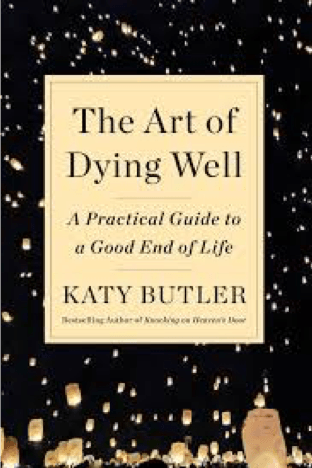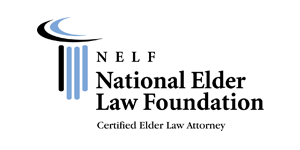HOW CAN WE HELP?
PRACTICE AREAS
AWARDS & ASSOCIATIONS
FOLLOW US
Book Review: The Art of Dying Well: A Practical Guide to a Good End of Life by Katy Butler
Review by Jack Carney
A book about dying (even dying well) is not your typical weekend read (except perhaps for an estate planning attorney). Yet, I am certainly glad that I decided to read this book.
 The author uses real life stories to discuss the issues of aging and dying in America today. I believe it reaches a well-reasoned conclusion that our current “end of life system” is broken. Further, the act of dying is no longer the natural and spiritual event it once was in our culture. We really fight the concept of dying, even when it is inevitable. Many individuals seek treatments that offer little additional time and often devastating side effects end up destroying those few precious moments they have left.
The author uses real life stories to discuss the issues of aging and dying in America today. I believe it reaches a well-reasoned conclusion that our current “end of life system” is broken. Further, the act of dying is no longer the natural and spiritual event it once was in our culture. We really fight the concept of dying, even when it is inevitable. Many individuals seek treatments that offer little additional time and often devastating side effects end up destroying those few precious moments they have left.
This book is an excellent resource manual for those feeling the effects of age or for someone (or their caregivers) who is facing a terminal illness. The information and stories progress from the first signs of decline in an individual to serious terminal illness. It also has a wonderful appendix full of additional resources for families in these situations.
I want to share some of the useful tips I personally took from the book:
- Your Final Wishes
- Hospice
- Medication Review
- Caregiving
It is important to have your health care wishes in an Advance Directive and maybe even the more detailed POLST (Physician Orders for Life-Sustaining Treatment). You also have the right to be as detailed as you wish about non-health care related matters. For example, you can designate where you wish to spend your final days and whether you have any special wishes for those moments, such as specific rituals, songs, prayers, etc.
Hospice is a program that is often associated with immediate death. In order to qualify for hospice a doctor must certify that you have a condition that is expected to take your life within 6 months. Yet, many times people live well beyond that date and even “come off hospice” because of the excellent care provided by most hospice programs. Even though hospice care can truly elevate a person’s quality of life, many patients enter hospice too late because of the misconceptions about the program.
I also learned that it is important to have a single medical professional that is skilled in “quarterbacking your care”. A Geriatrician is well-suited for this role. When a person has multiple doctors, each may be prescribing medications that are causing symptoms that are being treated by another doctor with even more medication. Further, some medications may cause dementia like symptoms that may lead to a nursing home admission, when all that was needed was a change in medication.
The book does a really nice job of preparing people for the need for care in the future. It encourages one to establish a “tribe,” or a group of people that can assist them when the time comes that they will require additional care. I think it is important to note that if we are blessed to live long enough, we will require additional care at some point. The book claims that we are a society that has a “fetish for independence.” However, as we age, we need to practice interdependence as a necessity for our care. Finally, I found that www.caregiver.org and www.sharethecare.org are good examples of the many useful resources available for caregivers.
If you would like to discuss your estate planning needs, please send us an email or give us a call at (205) 802-0696.
The post Book Review: The Art of Dying Well: A Practical Guide to a Good End of Life by Katy Butler appeared first on Carney Dye, LLC.
Request consultation
Request Consultation
We will get back to you as soon as possible.
Please try again later.
Powered by
© 2021 Carney Law, LLC. All Rights Reserved.




